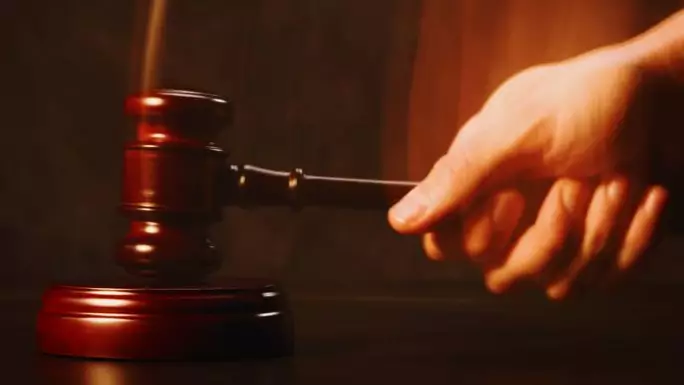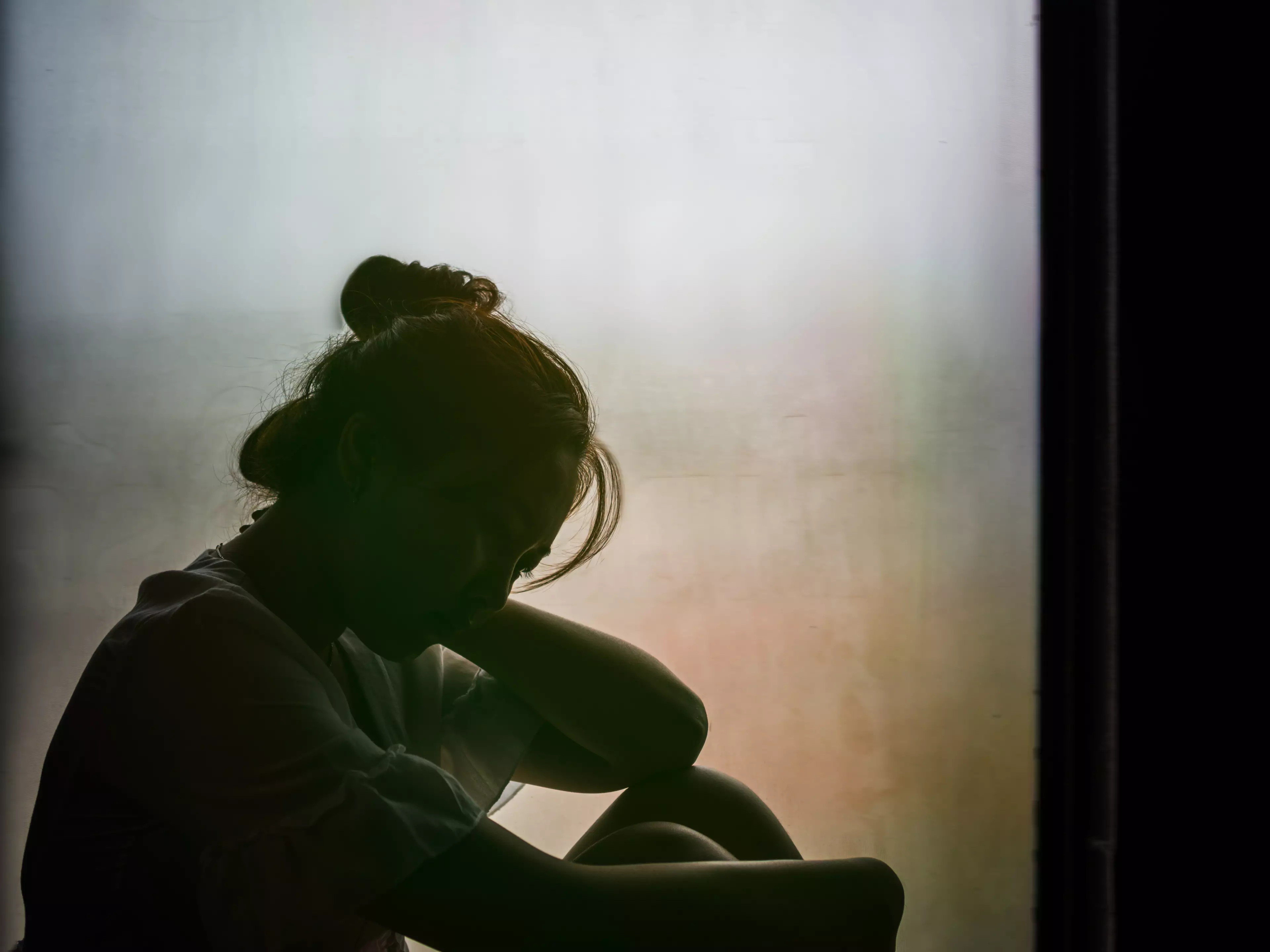
It recently emerged that rape convictions had plummeted to a record low in England and Wales.
Just 1 per cent of rapes reported to police resulted in legal proceedings in the 12 months up to March 2020.
Now, The End Violence Against Women Coalition (EVAW) - made up of multiple women's organisations - is set to challenge the Crown Prosecution service (CPS) in court, after suggesting that their previous failure to convict more individuals was akin to "the effective decriminalisation of rape".
Advert
This week the Court of Appeal will hear a judicial review, with three of the country's most senior judges looking at whether the the CPS "unlawfully changed its policy and practice on decision-making in rape cases".
In the hearing, 20 rape complaints against CPS will be presented by Centre for Women's Justice (CWJ) - the lawyers representing EVAW - and used against the director of public prosecutions (DPP).
Advert
The charities are seeking to demonstrate that there was a "damaging and secretive change in CPS policy and practice on charging decisions in rape cases before the court".
Favouring 'weaker cases'
The CPS has previously admitted to changing its policy so that, in 2016-2017, prosecutors were encouraged to avoid charging "weaker cases" to improve their overall conviction rate.
While this policy was scrapped two years later, the CPS have said that it may have given prosecutors a "perverse incentive" to prosecute fewer cases, and to favour the easier ones.
Advert
The women's organisations also allege that, back in 2016, prosecutors were told in training sessions that if they could get rid of "hundreds of 'weak' cases from the system" it would improve the CPS' overall conviction rates.
This same 'training' was not offered to prosecutors working in any other area of crime, they say.
The 'merts-based approach'
Further allegations include a claim that the CPS "systematically removed all guidance for sexual offences prosecutors and the public relating to the 'merits-based approach' to charging decisions in 2017 and 2018, without consultation".
Advert
The 'merits-based ' approach was introduced by Sir Kier Starmer, and essentially means prosecutors can't just decide whether a case would succeed based on a jury's prejudices - looking at the evidence rather than extenuating factors like mental health or the victims' relationship with the rapist.
"We believe the CPS must know that this change of guidance has had a negative impact - not least because - in a huge 'u-turn' revealed in October 2020 - they have now reinstated large extracts of the deleted guidance, word for word, on their website," the women's charities add.

Whistleblower information
The collective also claim to have evidence from a whistleblower within the CPS. More to follow on this as they unveil their testimony.
What have the CPS said?
The charity campaigners argue that it was the CPS' change in practice which led to a "catastrophic collapse" in the numbers of rape cases being sent to court (more than 50 per cent in two years, between 2016/17 and 2018/19), adding that while numbers are slowly rising they are still far below where we need them to be.
Advert
In a statement responding to the allegations, the CPS said: "There has been no change of approach in how the CPS prosecutes rape. Our skilled prosecutors are experienced and highly trained to make sure criminals can be brought to justice.
"No matter how challenging the case, whenever our legal test is met, we always seek to charge.
"Independent inspectors have found no evidence of a risk-averse approach and have reported a clear improvement in the quality of our legal decision-making in rape cases. The principles of the merits-based approach are enshrined in the Code for Crown Prosecutors, which guides every charging decision.
"Along with the police, we remain committed to making real, lasting improvements to how these horrific offences are handled, so every victim will feel able to come forward with confidence that their complaint will be fully investigated and, where the evidence supports, charged and prosecuted."
The hearing was granted by the Court of Appeal last July, who decided the case was arguable and should go to full hearing.
EVAW Coalition Director Sarah Green said: "We have felt compelled to bring this case because it is very clear from the data, and from what women using the support services provided by our members are experiencing, that the bar has been raised on charging in rape cases - leaving women denied justice and dangerous offenders getting away with it.
"We have been overwhelmed by wide public support for our bringing this legal action - including all the donations to our crowdfund for this case - which indicate the strong public concern about this matter. We are here for every woman and girl who has sought, is seeking or will seek justice in the future."

The case has now attracted such attention that there is even a crowdfund online to support EVAW's legal costs.
One particularly poignant message from a supporter reads: "I want change. Because I won't get justice for what was done to me.
"I think my case is about to be dropped. I'm not an innocent-enough victim. If they take my phone they'll find my sexual history which has been wild and joyful but I know they'll use it against me. I think they'll use all their resources to suggest a woman like me can't be raped. But I was raped.
"I myself have been let down by our justice system and support other women who have also been grievously let down too. The way this crime is considered is out of date, unfair and completely unjust. Thank you for standing up for every victim.
"Thank you for standing up for me, no one will ever pay for the abuse done to me, except me for the rest of my life.
"This needs to be fought. Thank you for doing it for all of us."
It comes as the charities warn we are still seeing a "worryingly low" proportion of cases being charged.
Indeed, Sky recently found that while rapes reported have tripled in England and Wales since 2012, when Jimmy Saville died, sadly in the last three years the number of rapes prosecuted and convicted has hit rock bottom.
Official stats show that in 2020, over 55,000 rapes were reported to police, and while some rapes had more than one alleged attacker, the total number of people convicted was still only 1,500 - the lowest number ever recorded.
This situation is bad enough, but the bigger issue, Sky report, is how many acts of sexual violence fly under the radar.
Many victims do not go forward after being raped, due to concern over whether they will be listened to, and fear of going to court, among other reasons. In fact, Rape Crisis found that only around 15 per cent of those who experience sexual violence report it to the police.
And recent ONS figures estimate that the real number of rape victims could stand at an unimaginable figure of 107,000 across England and Wales every year - that's 95,000 women and 12,000 men.
In response to this, the CPS added it has brought out a "five-year blueprint" which aims to "drive improvements" in rape prosecution and conviction.

When the CPS conducted its own research into why rape convictions were falling back in 2019, it found the justice system was at fault.
"It's undeniable," said Deputy Chief Constable Sarah Crew, the National Police Chiefs' Council's lead for adult sexual offences to Sky.
"From report to conviction, we're seeing the lowest volume of convictions against the highest levels of reports that we ever have. It's something police chief constables up and down the country worry about."
She added: "Because of austerity, there are fewer detectives dealing with bigger caseloads. Those caseloads are complex and they have a lot of digital material attached".
If you have been affected by the content in this article, please visit: https://rapecrisis.org.uk/